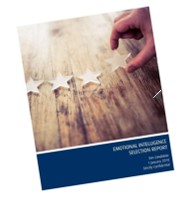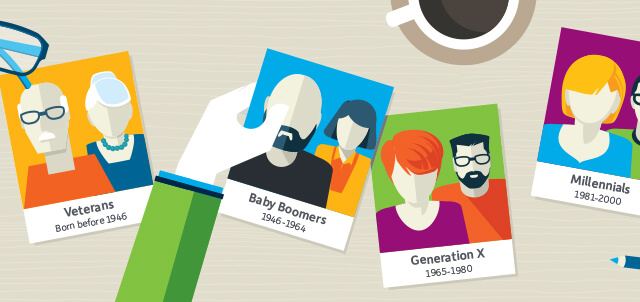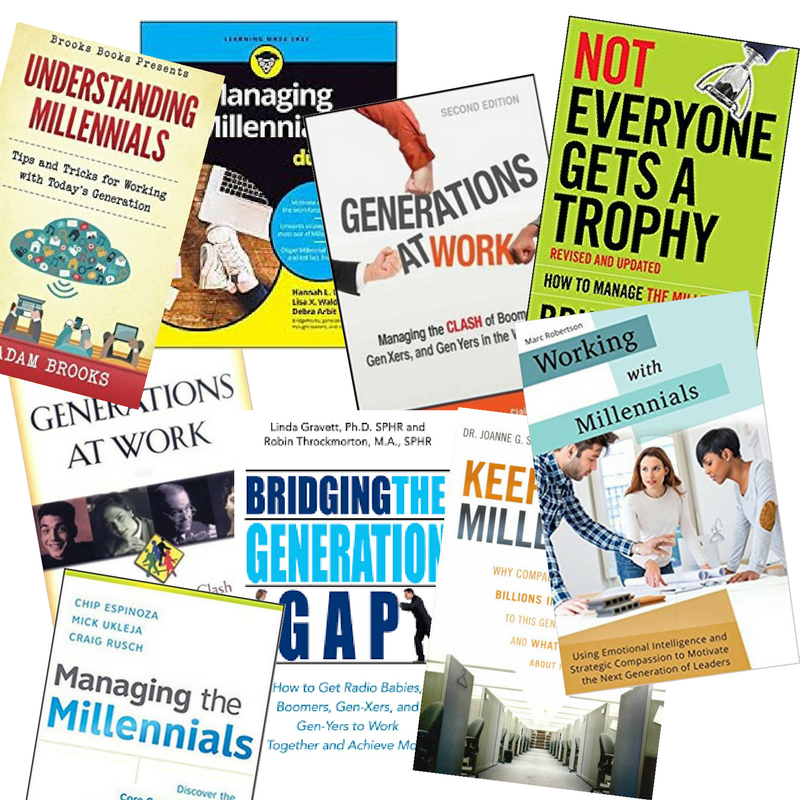Fast Forward International d.o.o.Rašica 20
1315 Velike Lašče
Slovenia
E-mail: jude@fastforwardonline.com
If you want more people coming to work at their best, then we would love to help you to achieve this.
Contact Us Today

Emotional Intelligence is a set of skills that help us better perceive, understand and manage emotions in ourselves and in others.
These skills are just as important as intellect (IQ) in determining success at work and in life. Emotions influence, both productively and unproductively, our decisions, behaviour and performance.
There’s also a wide variety of research and articles on the importance of hiring FOR emotional intelligence. But in all those blogs and pieces of content, authors don’t talk about HOW to hire for EI.
When we understand our own emotions and the emotions of others, our relationships grow, we become more resilient, and able to handle stress more effectively. Far too many employees lack basic self- awareness and social skills and too often, people aren’t aware of how their moods and emotions are impacting others in the workplace.
Harvard Business Review states:
We look for where someone went to school, high grades and test scores, technical skills, and certifications. We hire for pedigree and for intellect.
Research shows that EI positively correlate with levels of resilience and negatively correlate with levels of occupational stress. In other words, people with high EI feel less stressed.
Emotionally intelligent people tend to also be more successful in:
The report allows hiring managers to utilise EI measures as an additional means to avoiding bad hires.
The Genos Selection model comprises a set of seven emotionally intelligent competencies. These competencies represent workplace skills and behaviours, based on underlying abilities and experiences that are measurable and observable.
What does Genos EI Selection Report include?
 You can download a sample Genos EI Selection Report here.
You can download a sample Genos EI Selection Report here.
Emotional intelligence is one of many factors related to success in the workplace. The information presented in this report should be combined and weighted with other sources of information to determine the candidate’s suitability or lack thereof for employment.
If you’d like to learn more about this innovative new emotional intelligence selection tool, don’t hesitate to contact us.
A great misunderstanding when talking about emotional intelligence is that, similar to IQ, one gets a numerical score that tells you how emotionally intelligent you are (or aren’t).
However, what makes a person emotionally intelligent is not a score.
No amount of emotional intelligence will be of much use to you, if don’t demonstrate it when interacting with people around you. Which means it all comes down to our behaviour.
Genos International invested 20 years of research in identifying a specific set of 42 behaviours that are responsible for driving an emotionally intelligent impact. The good news is that pretty much all of us have many of those behaviours as a standard part of the way they behave day to day.
We just need some guidance to make just the right adjustments that will create the biggest positive impact in how we ‘show up’ and the way we are perceived in the eyes of people we work with.
 Think of emotional intelligence as being like a kaleidoscope.
Think of emotional intelligence as being like a kaleidoscope.
In a kaleidoscope a series of mirrors set at angles to one another create fascinating patterns when they reflect the tiny coloured beads that share the tube with them. When you turn the tube and even one bead you change its reflection, and the reflection of its reflection and so on – then the entire pattern changes dramatically.
Your working environment is just like that.
Each of your behaviours is like one of those coloured beads, and each of the people who work for you are like mirrors.
People are affected by your behaviours. How they are affected is reflected back to you and to every other person that they deal with day to day. If you change even one small thing about the way you behave in your interaction that can have a dramatic effect on the way you are perceived.
But how do you know which of those behaviours are already part of the default way in which you show up’, and which you need to work upon? Genos EI assessments are the only ones that measure ‘Demonstrated Emotional Intelligence’ in a workplace environment. They give you the answer to the question: how you ‘show up’.
Emotional intelligence is something you can absolutely develop and as a result have much more positive impact on people around you.
Interested? Contact us and let’s make it possible.
Source: Genos Europe
I first came across SDI many years ago when working for a Pharmaceutical company in the UK. We had a team building session for all of us in the HR team and the person brought in to do this used the SDI as a tool to help us understand and explore our differences and create common understanding. I was immediately inspired to learn more about this powerful tool and how I could use it further, and so soon after, I gained my SDI Certification.
After this I began training people in the company to understand these basic differences in our values, helping them to understand each other better and work together more easily. It was always a great experience for everyone. They learned a lot, enjoyed themselves and saw benefits in the quality of their relationships as well as reduced conflicts, better influencing ability and much more.
Once I moved to Slovenia and Joined DHL I asked the UK Company who trained me in SDI to come and certify our regional HR team and so we began to share the benefits of SDI across countries, languages and cultures where it was always received positively and improved difficult relationships.
Soon after I began Fast Forward I co-operated with the US owners of SDI to be able to certify others to work with the SDI and so our ability to spread the benefits of SDI grew again.
But then I had one experience that made me start to see the power that SDI has on a much larger scale. I was asked by one company to support a project team that was having cultural difficulties, with part of the team in Slovenia and part in Austria. They were having a lot of conflicts and misunderstandings and the teams in each country both felt it was the other's fault.
The original intention was to help them understand and explore their cultural differences in a way that would enable them to work more smoothly together. I used SDI with the team as a base to help them to see how even within the same culture we are different.
And something amazing happened.
As they explored their individual values and learned how to respect those differences it created a common language across cultures. Soon they recognised people who thought and worked as they did despite cultural differences. They saw these kind of differences as valuable to the team, learned that diversity, in its many ways, is of value and difference is something to be valued and appreciated, not something to judge, be afraid of, or frustrated by. Of course it doesn't mean it's always easy, but once we understand diversity and know how to find common ground, we can do this in many different contexts.
"As they explored their individual values and learned how to respect those differences it created a common language across cultures."
In our world today we have many forms of diversity and SDI has the power to open up dialogue. Dialogue is essential if we're to connect with our near and far neighbours and create a world where diversity is seen as a strength.
Some of us are open to this, some of us are afraid of this or have been brought up to believe there is one right way which creates more judgement and limits the benefits of diversity.
Using SDI as a tool for understanding diversity on the individual level can create a mindset that starts to focus on:
These things for sure help us with our work colleagues, our life partners, our extended families and neighbours. But the real power is how to apply this mind set to diversity of all kinds. With this we have the power individually and together to make the world a better place.
Join us in this mission!
In my work over the past few years, I am seeing the way of working change.
This change is driven by increased volumes of work, continuous improvement philosophy, drive for higher productivity levels, increased customer demands, need for quicker and more flexible responses to customers and increased competition. For many this can create stress, loss of work-life balance, reduced self-esteem and even health issues or burn out.
This is a big challenge for organisations to manage.
Some organisations are responding with a clear focus on the well being and development of their people, with the need to empower and give more responsibility and authority to teams and individuals. Soft skills are becoming more important, the need to be able to build strong relationships, increase teamwork and cooperation to more creatively solve problems and keep up with customer needs. This means individuals need to better manage themselves, their time, their goals, their careers, their skills, their behaviour and their results.
Strengths are a key part of positive approaches to promote growth in individuals and organisations. Realising strengths and the energy that drives them is a natural way to enhancing valued business outcomes while. At the same time it enables people to fulfil their potential and become the best they can be.
Research shows that using our strengths is associated with significant benefits such as increased well being, goal attainment, job performance and engagement.
The opportunity to use our strengths each day is a core predictor of workplace engagement, which in turn is a core driver for a range of positive business outcomes such as employee retention, discretionary effort, quality, customer satisfaction and loyalty, sales, profitability, shareholder return and business growth. We can clearly see the connection between this and challenges organisations are facing.
Our work with SDI tools has always been strengths based. Learning to understand and value our own and others strengths is simple yet effective in achieving better results together. We use SDI profiling tools to understand how our strengths might be seen by others in a way that is not always positive. This gives us the power to manage our behaviour choices.
Understanding the drives and needs of others and how to communicate in a way that is respectful of others needs is a key to teamwork and increased co-operation.
The need for flexibility also requires us to use a wider variety of strengths, not just those in our 'comfort zone'. Learning how to do this not only brings better results but also gives us feelings of self-worth, being valued and appreciated as an individual and team member.
In turn we feel empowered. And it is when the organisation transfers responsibility and accountability to every individual and team (not just line managers) then the power in the organisation is increased and so much more is possible.
Creating a Strengths Based Organisation has a lot to offer, but for some, it's a change in culture that can be hard to attain.
The SDI tool is a powerful, positive and simple way to achieve this.
For me personally, learning and working with SDI has continuously developed my strengths, helped me to open up to alternative ways of doing things and so have a wider range of behavioural choices. Simply said it allows me to work successfully in different situations with different people for different reasons.
Having started my SDI journey more than 20 years ago I know it has played a large part in getting me to where I am today and sharing this with others both individually and as organisations is my goal.
 This is what you get by typing »managing generations in the workplace« in Google. If you take out the words »in the workplace« the number rises to a whopping 145 million search results!
This is what you get by typing »managing generations in the workplace« in Google. If you take out the words »in the workplace« the number rises to a whopping 145 million search results!
All from how to manage different generations, how to motivate them, how to talk to them, how to understand them, etc. Why is it then that this nut hasn't been cracked yet and new articles on the subject matter keep popping up on a daily basis?
What if it's just not that simple?
"To effectively manage people, you need to focus on people. One by one."
People born in roughly the same era share certain social experiences, collective memory so to say, and do indeed show certain 'generational traits', but is this really enough to apply these generalisations to people management?
 When I first came across this talk about generations a couple of years ago, I too was attracted to its simplicity. It seemed really logical and I saw people making somewhat humorous presentations on this topic, trying to make it more appealing to the audience.
When I first came across this talk about generations a couple of years ago, I too was attracted to its simplicity. It seemed really logical and I saw people making somewhat humorous presentations on this topic, trying to make it more appealing to the audience.
Not long after I got a job as a youth employment counsellor I too gave a presentation to my colleagues about different generations that were our clients. I still believe the topic had some relevance since we were discussing adapting our services to better fit more tech savvy, younger clients.
So why was this topic relevant for me then and not so much now?
Last year I changed jobs and became a learning consultant. I am no longer trying to change services to better fit its users. My focus now is helping people make a change in their life, to inspire them to think differently. Helping people reach their potential, to be better, more motivated, productive, happier and more successful. And I believe real change can only be achieved on a person-basis.
For example, Generation Y, to which I apparently belong, are those born roughly between 1980 and 2000 (please note that these generation-limits make most sense to people in the western part of the world). Generational-based people management implies that anywhere in the world someone who is just finishing high school is to be inspired, motivated and lead in the same way as someone with already nearly a decade of work experience, most likely at a very different point in life. The same example can be made for any other generation.
Do you agree?
I believe it is overly simplified and more – it creates unnecessary gaps and differences between people, grouping and labelling them as members of a generation instead of a team. This doesn't do much good for the team spirit.
"Focusing on generations in managing people creates unnecessary gaps and differences between them, grouping and labelling them as members of a generation instead of a team."
To effectively manage people, you need to focus on people. One by one. Focus on what motivates them, what really matters to them, what makes them feel good. Help them develop a better sense of self-awareness, because only through really understanding themselves will they ever be able to better understand others.
This will give you a good foundation to also manage and develop teams. Building bridges instead of widening gaps. Learning individual differences, understanding them in order to work together more efficiently. This is what will in turn lead to building high performing teams.
As a learning consultant I see great results and real changes being made without focusing on generational differences. Our workshop participants may come from the same or different generations – it makes no difference because we will always focus on creating change from within.
This kind of change is the only real change.
The way of work is changing and with it the stability of work is decreasing. It used to be that when you started work many people would spend their whole working life with that same company. In the UK the generation of my parents were the 1st to experience the unpleasant reality of this no longer being the case. Downsizing, takeovers and other organisation changes led to redundancies and people in their later 40's and 50's finding themselves unemployed or not feeling competent or capable with the new tools, skills or way of work.
People expected to work their years and then retire to a simpler, easier way of life, with more time for family, friends, hobbies and other personal interests. Today our expectations are perhaps different. I have seen a number of people retiring and feeling a little lost, unsure what to do with this time they now have and how to make it meaningful.
"Speaking for myself as over 50 I see my experience and knowledge to be of value to many others and cannot imagine not having the meaning and purpose from my work in my life for the longer term. It is a passion, a drive to want to contribute to a better world and society and I see no reason why this would stop because you reach a certain age."
In times gone by, as people aged they were seen as the wise ones, with knowledge, advice, skills that needed to passed on to the younger generation that they valued and needed in their lives and communities. They were respected, valued and needed, which provided purpose and meaning throughout a person's whole life. In the age of technology and rapid change we are in today, this philosophy has changed, with the younger generation having access to knowledge, information and learning skills that some people struggle to grasp. This turns society upside down. With the younger generation being more valued and the feeling they can contribute more and more quickly than the older generation whose place is diminishing. This is of course, not true, but is a perception sometimes accepted as a truth.
"As people aged they were once respected, valued and needed, which provided them with purpose and meaning. Age of technology turned society upside down."
So what does this mean for individuals today who are in or approaching so called middle age and what does it mean for organisations who employ them?
Today we have a big focus on the value of diversity and the value this diversity brings in different ways of thinking, experiences, knowledge, skills, beliefs and values. The complexity of work and our society needs this diversity, and needs everyone to find their place where they feel valued and can make a difference that is appreciated. It's also important for each of us to have meaning and purpose in our lives which is essential for our health and wellbeing.
This applies to all kinds of diversity, culture, gender, race, personality and much more, including age. We already acknowledge and embrace much of this diversity, age is just another type of diversity for us to value and learn to understand.
"The complexity of work and our society needs diversity, and age is just another type of diversity for us to value and learn to understand."
Today many governments are starting to recognise also the social impact of an ageing workforce and the implications of this not only in the workplace, but on the family, in communities and social well being. In 5 years' time, one in every four employees in Slovenia will be older than 55.
In our work at Fast Forward, we are already well known for helping people to understand the value of diversity in our core values and behaviours and how to embrace this for the benefit of all. We are now proud to apply this also to the value of age diversity.

Fast Forward International d.o.o.Rašica 20
1315 Velike Lašče
Slovenia
E-mail: jude@fastforwardonline.com
If you want more people coming to work at their best, then we would love to help you to achieve this.
Contact Us Today